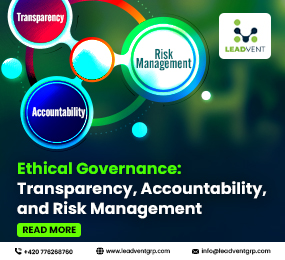ESG and Climate in Africa: Building a Resilient, Sustainable Future
Environmental, Social, and Governance (ESG) principles are becoming essential for global development, but in Africa, they carry added significance. As one of the regions most vulnerable to climate change—despite contributing the least to global emissions—Africa’s ESG journey is rooted in both urgency and opportunity.
From the deserts of the Sahel to the coastal cities of West and East Africa, communities are already experiencing rising temperatures, erratic rainfall, and growing food insecurity. These environmental shifts are not abstract forecasts—they are current realities affecting lives, economies, and ecosystems.
However, the story of ESG in Africa is not solely about risk. It's about transformation.
Turning Climate Risk into Economic Opportunity
Across the continent, governments, businesses, and civil society are recognizing that climate responsibility and economic development must go hand in hand. Renewable energy investments are expanding, particularly solar and wind. In countries like Kenya and South Africa, green energy is powering homes and industries while reducing dependency on fossil fuels.
Companies are being encouraged—or required—to report on ESG performance, and investors are increasingly demanding transparency around environmental and social impact. Local banks and financial institutions are starting to embed ESG into their lending criteria, incentivizing sustainable business models.
On the governance side, the need for stronger regulatory frameworks and anti-corruption measures remains critical. But progress is being made. From sustainable agriculture initiatives in Ethiopia to climate resilience projects in Rwanda, there’s growing alignment between policy and practice.
Community-Centered Climate Action
One of Africa’s strengths is its community spirit. ESG initiatives across the region are increasingly community-driven—whether through rural clean water projects, youth-led reforestation programs, or gender equity in climate leadership.
There’s also a rising demand for climate justice. African leaders are calling for more climate finance from wealthier nations, arguing rightly that support is needed for mitigation and adaptation efforts in regions most affected.
Conclusion
Africa’s climate and ESG narrative is still unfolding. While challenges remain, the momentum is real. The continent is not just adapting to climate change—it is actively redefining what sustainable development looks like through local innovation, policy reform, and regional cooperation. If supported with the right investments and
partnerships, Africa can emerge as a global model for inclusive, resilient, and climate-smart growth.
Learn more on our website: https://www.leadventgrp.com/events/esg-and-climate-africa-summit/details
For more information and group participation, contact us: [email protected] .
Leadvent Group - Industry Leading Events for Business Leaders!
www.leadventgrp.com | [email protected]
















